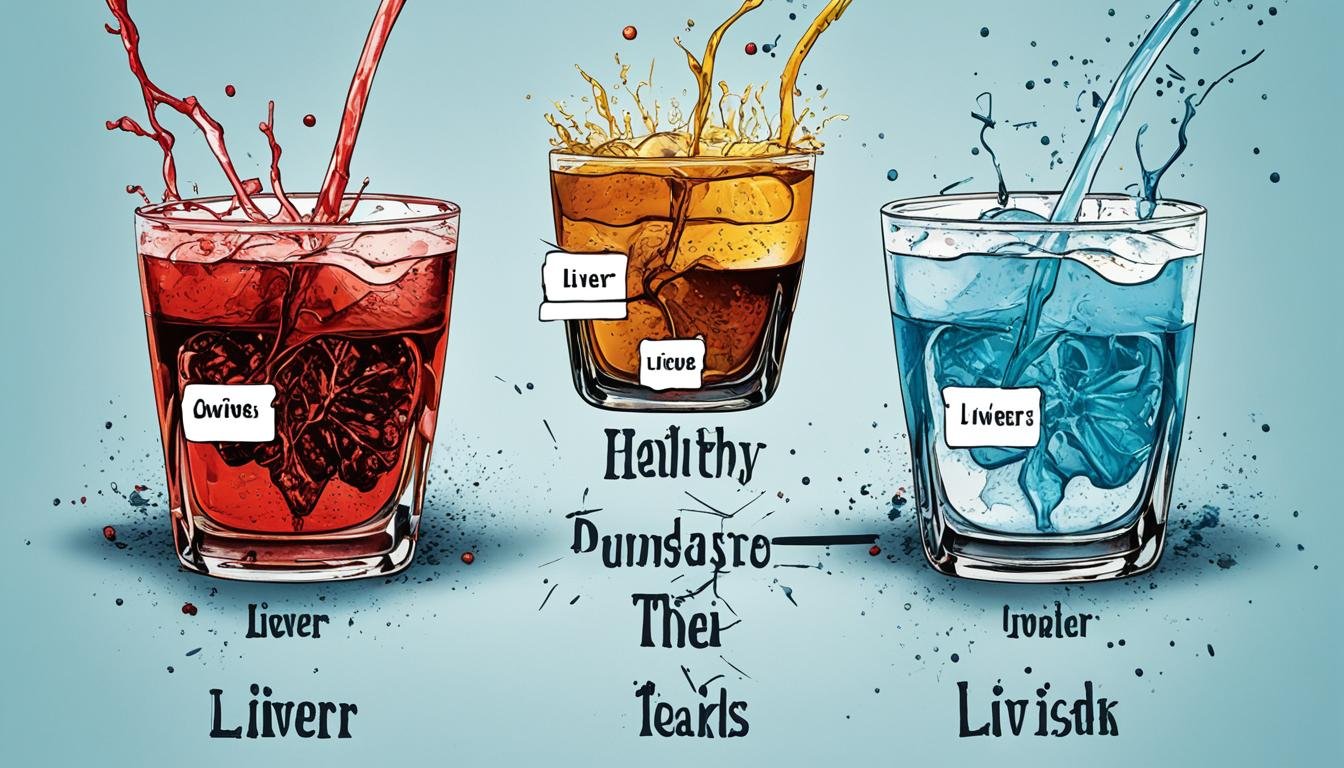Choosing a sugary soda over alcohol might seem better for your liver. But, a daily soft drink can be just as risky as alcohol. It can cause fatty liver disease. The sugar in these drinks turns into fat in liver cells. Over time, this can lead to severe liver scarring, known as cirrhosis.
Even one sugary drink daily can bring on fatty liver disease. This boosts the risk of heart disease, diabetes, and some cancers.
Key Takeaways:
- Sugary and carbonated drinks can lead to the buildup of fat in the liver, a condition known as non-alcoholic fatty liver disease.
- Excess sugar intake from these beverages can progress to more severe liver damage, including cirrhosis and the need for liver transplants.
- Drinking just one sugary drink per day increases the risk of heart disease, diabetes, and certain types of cancer.
- Moderation and choosing healthier beverage options, such as water, are essential for maintaining a healthy liver.
- Symptoms of a struggling liver include nausea, loss of appetite, and pain in the right side of the abdomen.
The Harmful Impact of Sugary Beverages on Your Liver
When you drink a sugary soda or juice, you might not know you’re hurting your liver. These drinks, packed with sugar and high fructose corn syrup, are bad news for your liver’s health.
The Surprising Link Between Soda and Liver Damage
People don’t realize a daily soda is as bad as too much alcohol for your liver. The sugar turns into fat in your liver, leading to fatty liver disease. Your liver gets stressed and can’t clean toxins well.
How Sugar in Beverages Turns to Fat in Your Liver
When you have a sugary drink, your liver turns the sugar into fat fast. This fat causes inflammation and hurts your liver function.
The Consequences of Fatty Liver Disease
More liver fat means a bigger risk of fatty liver disease and cirrhosis. These lead to diabetes, heart disease, and cancer. It’s a serious issue that affects your whole body.
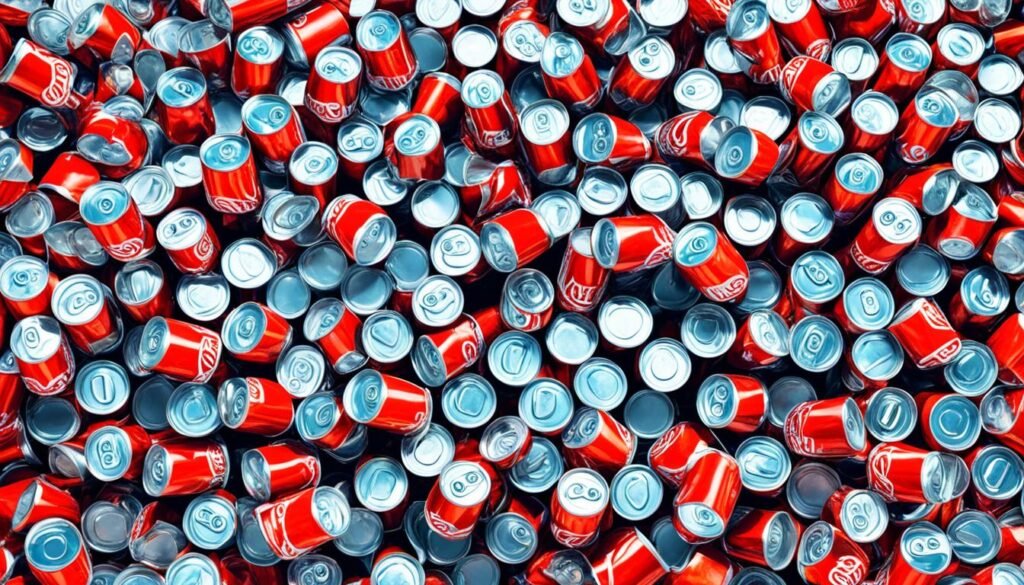
Cold Drinks Daily Might Do to Your Liver
The rise of non-alcoholic fatty liver disease is alarming. It has become a big health worry. This disease is increasing because of our lifestyle. Our love for sugary sodas is mostly to blame.
The Alarming Rise of Non-Alcoholic Fatty Liver Disease
More and more people are getting fatty liver disease. Before, liver damage caused by alcohol was the top reason for transplants in the U.S. Now, fatty liver disease is second. This change is because obesity and too many sugary drinks are common.
Liver Transplants Caused by Fatty Liver Disease
The problem of fatty liver disease is getting worse. Because of this, the number of liver transplants needed is going up. This shows we need to know more and do things to stop this health issue.
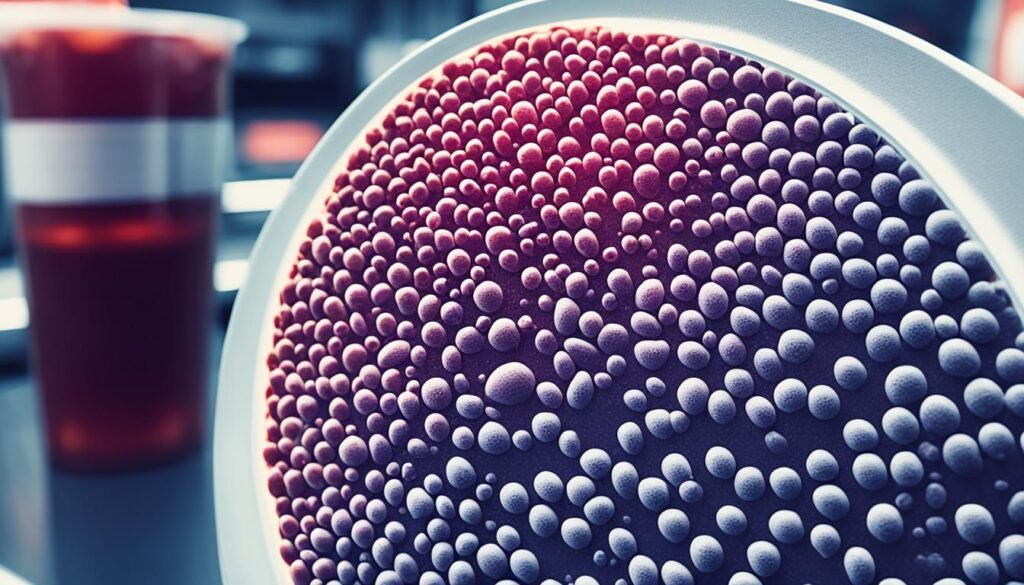
Moderation is Key: Balancing Sugary Drink Intake
It’s hard to resist a cold, sugary drink, but keeping intake in check is crucial. An occasional treat poses little risk, but drinking them daily can harm your liver. This harm includes the potential for a fatty liver and other serious health conditions.
Occasional Indulgence vs. Daily Consumption
If a sweet, sugary drink is a weekly affair for you, don’t worry too much. This might disappointnon-alcoholic fatty liver disease significantly. However, a habit of knocking back multiple sweet drinks each day is a different story. It could increase your risk of non-alcoholic fatty liver disease.
The Best Beverages for Liver Health
For a healthy liver, water is the undisputed best choice. Staying hydrated is critical for your overall health. If you’re seeking a substitute for sodas, diet beverages pose a lesser evil. Yet, their impact over time on liver health remains under study.
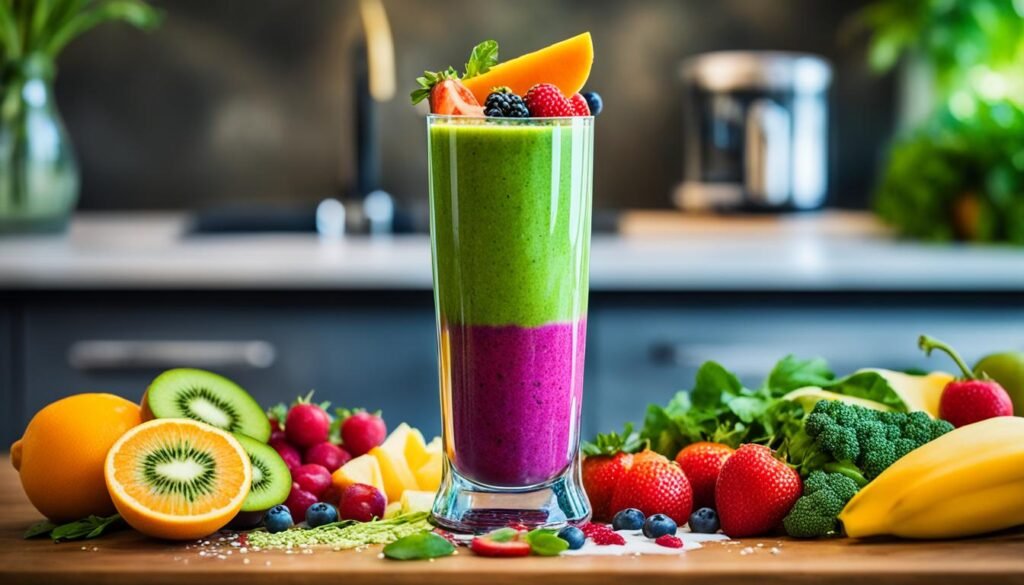
Warning Signs of a Struggling Liver
Understanding your liver’s health is crucial. Be watchful for when symptoms appear. Things like nausea, loss of appetite, and feeling tired might mean your liver isn’t okay. Pain below the right ribcage is also a sign.
Symptoms to Watch Out For
More severe liver issues could show up as time goes on. Jaundice makes your skin and eyes yellow. This sign says your liver is struggling.
The Progression of Fatty Liver Disease
Fatty liver disease can get worse if not treated. It might lead to cirrhosis – damage and scarring to the liver. In the worst case, a liver transplant could be needed.
Awareness and early action can help keep your liver healthy. Talk to your doctor if you’re worried about your liver.
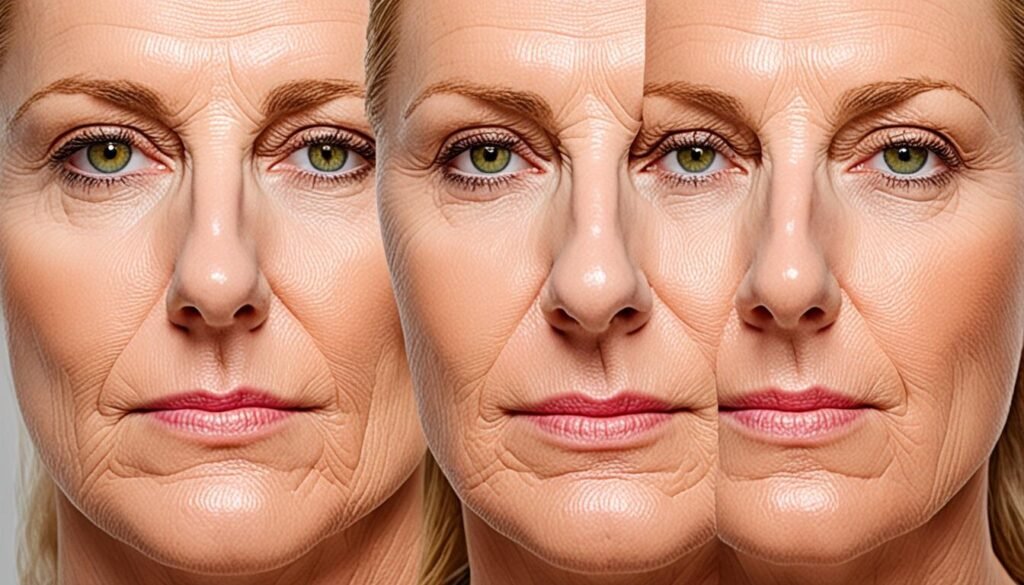
Reversing the Damage: Lifestyle Changes for Liver Health
Fatty liver disease can get better with the right changes in what you eat and how you live. Focus on eating better, moving more, and keeping your weight in check. This can help your liver heal and might even undo the damage of fatty liver disease.
Dietary Modifications for Liver Improvement
Eating well is key for people with non-alcoholic fatty liver disease. Try to eat less sugary and processed foods. Instead, eat more fruits, veggies, whole grains, lean meats, and good fats. This kind of diet helps your liver work better and cuts down on swelling.
The Importance of Exercise and Weight Management
Exercise is important for your liver too. It’s a must-do to fight fatty liver disease. Moving more, along with eating right, helps you keep a good weight. Aim for 150 minutes of exercise a week. You could go for brisk walks, bike rides, or swim. Doing this helps your liver get rid of extra fat.
Potential Treatments for Non-Alcoholic Fatty Liver Disease
Besides changing how you live, there’s hope in new treatments. Places like Ohio State University are studying ways to treat non-alcoholic fatty liver disease. They’re looking into how certain drugs or other therapies might help as the disease gets worse. If you’re in that spot, talking to your doctor about these options is wise.
The Impact of Diet Soda on Liver Health
Recent studies show that drinking diet soda might harm our liver. Experts think it’s because of the fake sugars in these drinks. Too much can make us resist insulin, gain weight, and even get fatty liver disease.
The Connection Between Artificial Sweeteners and Fatty Liver
Diet soda seems like a good swap for people trying to cut sugar or lose weight. However, those artificial sweeteners might not be so safe. They could mess up how our bodies work, causing more insulin issues and sticking extra fat in our livers.
The Need for Further Research on Diet Soda and Liver Disease
Understanding how diet soda affects our liver more is crucial. Some early studies hint that there could be a link to liver disease. But, we really need to dive into this to see exactly how and why artificial sweeteners mess with our livers. With more people getting fatty liver disease, it’s important to look into everything, including how much diet soda we drink.
Coffee and Liver Protection: A Surprising Ally
It’s not what you might think. A few cups of coffee daily could help your liver stay healthy. Research finds that those who drink coffee often have a lower risk of liver diseases. These include cancer and scarring (like fibrosis and cirrhosis).
Coffee‘s benefits cover many types, like filtered, instant, and even espresso. The antioxidants and anti-inflammatory properties in coffee are believed to be the key. They may slow down liver conditions in some people.
But, coffee can’t do it all. A healthy lifestyle is still the best way to care for your liver. This includes eating well, keeping a healthy weight, staying hydrated, and regular exercise. Coffee is good, but it’s not a full solution by itself.
| Benefits of Coffee for Liver Health | Potential Drawbacks |
|---|---|
|
|
Indeed, coffee is a great support for your liver. But it’s just part of the bigger picture. Mixing coffee benefits with other habits is key. This way, you’re taking a whole approach to a fitter liver.
Conclusion
Drinking cold drinks every day can harm your liver. Especially, sugary and fizzy drinks are risky. They often lead to a liver disease called non-alcoholic fatty liver disease. This happens when too much sugar causes fat to build up in the liver. It can get so bad that you might need a liver transplant.
To keep your liver healthy, cut back on cold drinks and choose water or other plain drinks instead. It’s also important to eat well and stay active. These steps help stop liver disease and protect your health.
The power to keep your liver in good shape is yours. Watching how much cold drink you have and living in a way that’s good for your liver really matters. Doing this means you’re taking good care of your body’s most important organ. That’s how you ensure a healthy future.
